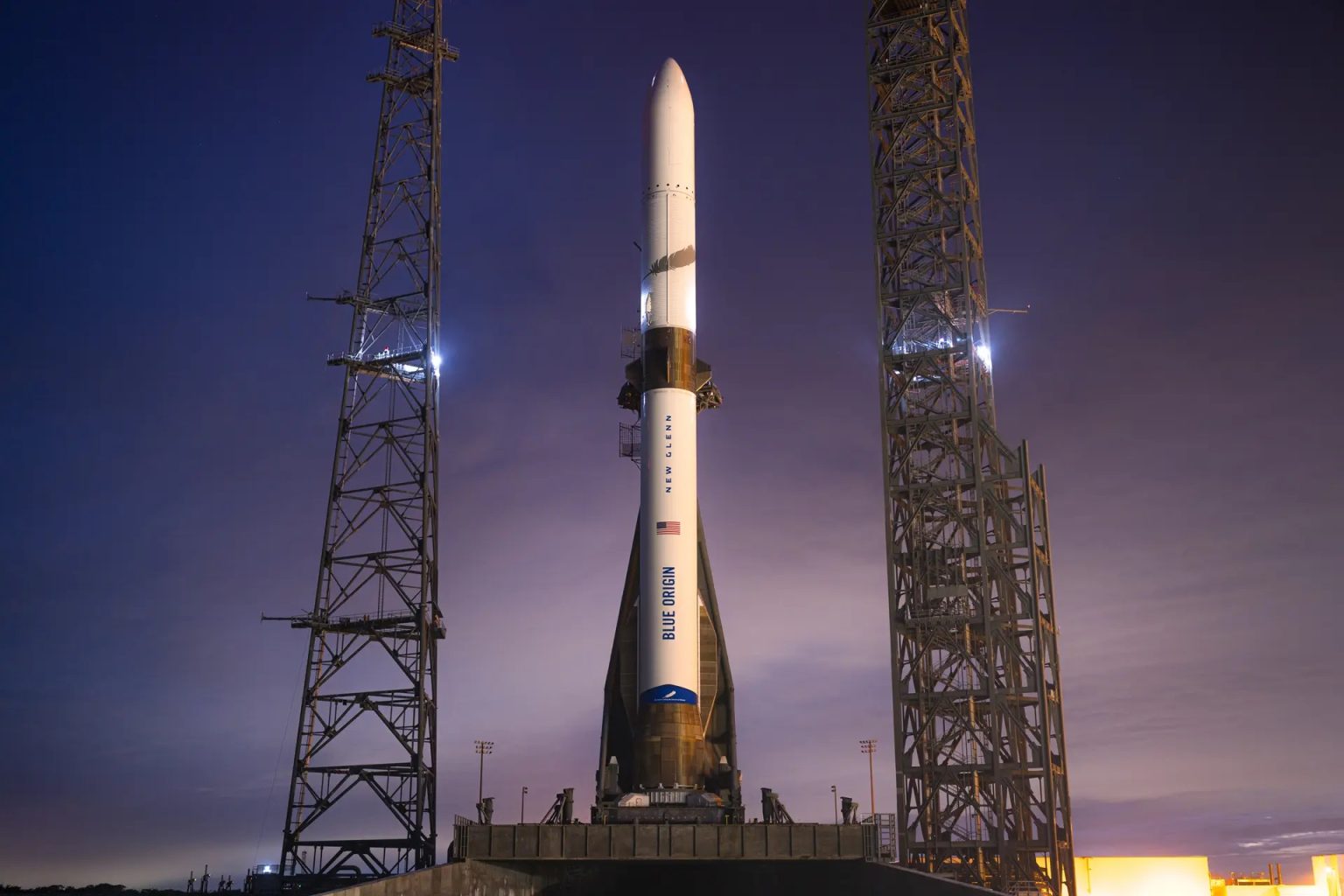Paragraph 1: Launch Delay and Payload
Blue Origin, the space venture founded by Jeff Bezos, has postponed the maiden launch of its orbital-class New Glenn rocket. Initially slated for an early Friday morning liftoff from Cape Canaveral Space Force Station, the launch has been rescheduled for Sunday morning due to unfavorable sea conditions in the Atlantic Ocean, the planned landing site for the rocket’s first-stage booster. This delay underscores the importance of optimal weather conditions, particularly for the delicate maneuver of booster recovery at sea. The primary payload for this inaugural New Glenn mission is the Blue Ring Pathfinder, a test platform designed to evaluate communication, power, and control systems for Blue Origin’s future Blue Ring multi-use space platform. This pathfinder mission, supported by the Pentagon’s Defense Innovation Unit, represents a significant step towards developing advanced orbital logistics capabilities.
Paragraph 2: Significance of the First Flight
The New Glenn rocket’s first flight is a pivotal moment for Blue Origin, marking the culmination of over a decade of development and investment. The company acknowledges the inherent challenges of a maiden launch, emphasizing the irreplaceable value of real-flight data compared to ground tests and simulations. While meticulous preparations have been made, the true test lies in the rocket’s performance in flight, which will provide invaluable insights for future iterations and launches. This launch carries immense significance for Blue Origin’s reputation and future prospects, as it marks their entry into the orbital launch market, a domain currently dominated by competitors like SpaceX.
Paragraph 3: Rocket Specifications and Landing Challenges
New Glenn, named after pioneering astronaut John Glenn, stands as a colossal rocket exceeding 320 feet in height. Its expansive 7-meter payload fairing offers twice the volume of standard fairings, providing ample space for large satellites and other payloads. Powered by seven BE-4 engines using liquefied natural gas for the first stage and two hydrogen-fueled BE-3U engines for the second stage, New Glenn generates a liftoff thrust of 3.8 million pounds. The ambitious plan involves landing the first-stage booster on a specially designed barge named Jacklyn, a tribute to Bezos’s mother, located hundreds of miles offshore. This maneuver presents a significant technical challenge, acknowledged by Blue Origin CEO Dave Limp, who recognizes the historical difficulty of achieving a successful first-time booster landing.
Paragraph 4: Addressing Criticism and Competition
A successful New Glenn launch would address a long-standing criticism directed at Blue Origin: despite two decades in operation and substantial financial investment, the company has yet to achieve orbital flight. This contrasts sharply with the achievements of SpaceX, their main competitor, which has established itself as a leader in the orbital launch market. New Glenn’s successful entry into commercial service could significantly alter the competitive landscape, potentially challenging SpaceX’s dominance and offering new options to customers seeking orbital launch services.
Paragraph 5: Future Missions and National Security Implications
Blue Origin already has several New Glenn rockets in production at its Florida facility and reports a full manifest of future launch contracts. High-profile missions on the horizon include deploying satellites for Amazon’s Project Kuiper broadband constellation and launching twin orbiters for NASA’s ESCAPADE mission to Mars. Beyond commercial ventures, this inaugural launch is a crucial step towards qualifying New Glenn for national security space launch contracts, potentially securing billions of dollars in government contracts.
Paragraph 6: Long-Term Vision and Impact
The New Glenn program represents a significant leap forward for Blue Origin, transitioning from suborbital tourism with New Shepard to the much more demanding arena of orbital launches. Success with New Glenn could position Blue Origin as a major player in the space industry, competing directly with established players like SpaceX. This increased competition could drive innovation, reduce launch costs, and accelerate the pace of space exploration and commercialization. The maiden flight of New Glenn, therefore, signifies not only a technological milestone but also a potential turning point in the evolving landscape of space access and utilization.















